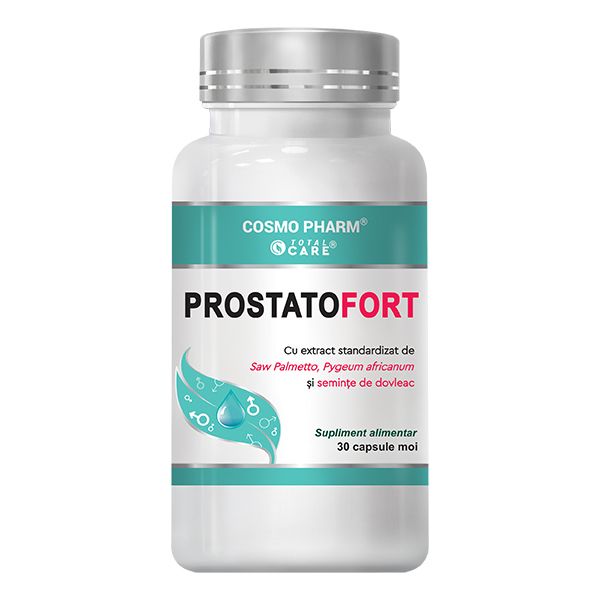Benign Prostatic Hyperplasia (BPH), also known as prostate enlargement, is a prevalent urological condition affecting aging men. In Europe, the incidence and prevalence of BPH are significant, with studies indicating that approximately 50% of men over 50 years and up to 80% of men over 70 years experience symptoms related to prostate enlargement – The Sun
Epidemiology in Europe
The Global Burden of Disease Study 2019 reported that the prevalence of BPH in European countries varies. For instance, in countries like Iceland and Malta, the prevalence rates are notably high, with estimates of 66.4% and 82.6%, respectively, among men aged 60 and older. Conversely, countries such as Greece and Serbia report lower prevalence rates, approximately 18.6% and 23.1%, respectively, in the same age group. These variations may be attributed to differences in healthcare access, lifestyle factors, and genetic predispositions.PMC
Pathophysiology and Function of the Prostate
The prostate is a walnut-sized gland located below the bladder and in front of the rectum in men. It plays a crucial role in the male reproductive system by producing seminal fluid that nourishes and transports sperm. The prostate surrounds the urethra, the tube through which urine and semen pass. As men age, hormonal changes, particularly increased levels of dihydrotestosterone (DHT), can lead to prostate cell growth, resulting in BPH. This enlargement can compress the urethra, leading to obstructive and irritative urinary symptoms such as frequent urination, especially at night, difficulty starting urination, weak urine stream, and a feeling of incomplete bladder emptying.
Age-Related Incidence
The incidence of BPH increases with age. Studies have shown that the prevalence of BPH is approximately 8% in men in their 40s, rising to 50% in those in their 60s, and up to 80% in men over 80 years old. This age-related increase underscores the importance of regular screening and early intervention to manage symptoms and improve quality of life.
Is Prostate Enlargement Preventable or Treatable?
Currently, research has not identified a way to prevent prostate enlargement. For many men, it is a natural part of aging, and the risk of developing benign prostatic hyperplasia (BPH) increases over time. In fact, around 50% of men aged 51 to 60 are affected by BPH.
Although prostate enlargement cannot be fully prevented, it can be managed and treated—especially when detected early. If you start experiencing symptoms such as a weaker urine stream, frequent urges to urinate, or the need to urinate multiple times during the night, it’s important to consult your doctor as soon as possible to determine whether early intervention is needed.
Supplements and Prostate Health: What Does the Science Say?
Prostate health is an essential concern for many men, especially as they age. While there is no shortage of over-the-counter supplements claiming to improve prostate function or reduce symptoms related to conditions like benign prostatic hyperplasia (BPH), the scientific evidence supporting these claims remains mixed. This article explores the role of supplements in prostate health, focusing on ingredients like saw palmetto, selenium, zinc, and beta-sitosterol.
Prevalence of Prostate Issues and Supplement Use
Prostate enlargement, or BPH, is a common condition that affects a significant proportion of aging men. In Europe, studies indicate that nearly 50% of men over 50 and as many as 80% of men over 70 experience some form of prostate enlargement, making it a critical issue for elderly populations. Many men with a family history of prostate cancer turn to supplements to support prostate health, often motivated by concerns over BPH symptoms such as frequent urination, weak urine flow, and urinary retention.
Saw Palmetto: The Most Popular Supplement
Saw palmetto is perhaps the most well-known supplement used for prostate health, commonly marketed as a remedy for BPH symptoms. Extracted from the fruit of the saw palmetto plant, it has been shown to help with urinary symptoms like the frequent urge to urinate or weak urine flow. However, research results on its effectiveness are inconsistent. Two large, high-quality studies funded by the National Institutes of Health concluded that saw palmetto was no more effective than a placebo. Despite this, other studies suggest modest benefits, making it a somewhat controversial option.
Selenium: Potential in Cancer Prevention
Selenium, a trace mineral, has garnered attention for its potential to protect against prostate cancer and slow its progression. Some studies have suggested that selenium may play a role in reducing cancer risk, but the evidence remains inconclusive. Researchers have not been able to determine which men may benefit from selenium supplementation or what an appropriate dosage would be. As with many supplements, more research is needed to understand the exact relationship between selenium and prostate health.
Zinc: A Double-Edged Sword
Zinc is an essential mineral found in high concentrations in the prostate, and some studies suggest that zinc deficiency may be linked to both prostate enlargement and prostate cancer. However, observational studies on zinc supplements have yielded inconsistent results. In fact, high doses of zinc may increase the risk of prostate cancer, complicating recommendations for supplementation. Therefore, balancing zinc intake through a healthy diet may be a safer approach than relying on supplements.
Beta-Sitosterol: Reducing Symptoms
Beta-sitosterol is a plant sterol found in fruits, vegetables, nuts, and seeds. Known for its cholesterol-lowering effects, beta-sitosterol has also been investigated for its ability to reduce symptoms of BPH. Some studies have shown that beta-sitosterol, particularly when combined with saw palmetto, can improve urinary symptoms like urine flow.
PROSTATOFORT – the complex dietary supplement designed specifically to support prostate health
PROSTATOFORT is a dietary supplement designed specifically to support prostate health. It is marketed as an anti-inflammatory and prostate shrinkage aid, helping to reduce frequent urination, urinary discomfort, and improve overall prostate function. In this article, we will break down each ingredient in PROSTATOFORT to examine its efficacy, based on scientific evidence, and demonstrate how these ingredients work synergistically to support prostate health.
- Pumpkin Seed Oil (Cucurbita pepo) – 250 mg
Pumpkin seed oil is a well-known natural remedy for prostate health. It is rich in essential fatty acids, antioxidants, and zinc, which are vital for prostate function. Studies suggest that pumpkin seed oil can help alleviate symptoms of benign prostatic hyperplasia (BPH), such as frequent urination and weak urine flow. The oil’s anti-inflammatory properties also help reduce swelling in the prostate, easing the discomfort often associated with prostate enlargement. Regular consumption can enhance urinary health and potentially slow the progression of prostate issues, making pumpkin seed oil a cornerstone of this supplement.
- Saw Palmetto (Sabal serrulata) Extract – 160 mg
Saw palmetto is one of the most studied herbs for prostate health. Known for its ability to reduce symptoms of BPH, it works by inhibiting the enzyme responsible for converting testosterone to dihydrotestosterone (DHT), which is a major factor in prostate enlargement. Although studies have shown mixed results, many suggest that saw palmetto can effectively improve urinary function and reduce inflammation in the prostate. The 160 mg dose in PROSTATOFort falls within the typical range shown to provide benefits for men experiencing BPH-related symptoms.
- Pygeum Africanum Extract – 40 mg
Pygeum Africanum, a bark extract from an African tree, has a long history of use in managing prostate health, particularly BPH. Clinical studies have demonstrated its ability to reduce inflammation, improve urine flow, and decrease urinary frequency. By inhibiting the growth of prostate cells and reducing swelling, Pygeum Africanum promotes overall prostate function. It also acts as a natural diuretic, which can help reduce fluid retention and improve the flow of urine, providing relief for men struggling with nighttime urination.
- Beta-Sitosterol – 25 mg
Beta-sitosterol, a plant sterol found in foods like fruits, vegetables, and nuts, is known for its beneficial effects on prostate health. It has been shown to alleviate symptoms of BPH, including reducing the need for frequent urination and improving urine flow. Although it does not shrink the prostate directly, beta-sitosterol plays a crucial role in relieving urinary symptoms, which can significantly improve the quality of life for men dealing with prostate enlargement.
- L-Glutamic Acid – 100 mg
L-glutamic acid is an amino acid involved in various metabolic processes, including protein synthesis. While its role in prostate health is less well-documented, glutamic acid is believed to support general cell health and aid in reducing oxidative stress, which can contribute to prostate inflammation. By enhancing cellular function and repair, it indirectly supports the health of the prostate gland, especially in older men.
- Glycine – 100 mg
Glycine is another amino acid that has anti-inflammatory properties and supports muscle relaxation. It plays a role in reducing the discomfort caused by prostate issues, as it helps to relax the muscles of the prostate and bladder, potentially reducing the pressure on the urethra and improving urinary function. Its synergistic action with other ingredients in PROSTATOFort may further enhance its effects on prostate health.
- L-Alanine – 50 mg
L-alanine is an amino acid that aids in metabolic processes and energy production. While its specific role in prostate health is not as well-studied as other ingredients, it contributes to overall well-being by supporting protein metabolism and potentially aiding in the reduction of inflammation.
- Vitamin E – 33.33 mg
Vitamin E is a potent antioxidant that helps protect the body from oxidative stress, which can accelerate aging and the development of prostate issues. It is known for its ability to slow down cellular aging and reduce inflammation. By fighting free radicals, Vitamin E supports the maintenance of prostate tissue health, reducing the risk of prostate-related diseases.
- Zinc – 15 mg
Zinc is a key mineral for prostate health, as prostate cells accumulate more zinc than cells in any other tissue. It plays a crucial role in the normal functioning of the prostate and the regulation of testosterone levels. Zinc deficiency has been linked to an increased risk of BPH and prostate cancer. By providing a sufficient amount of zinc, PROSTATOFort helps to maintain the prostate’s health, supporting normal function and potentially reducing the risk of prostate issues.
Conclusion: The Synergistic Benefits of PROSTATOFORT
PROSTATOFORT combines several powerful natural ingredients that work synergistically to support prostate health. From reducing inflammation and improving urinary function with pumpkin seed oil and saw palmetto, to alleviating discomfort and promoting prostate shrinkage with Pygeum Africanum and beta-sitosterol, this supplement offers comprehensive support for men dealing with BPH and other prostate-related issues.
The inclusion of antioxidants like Vitamin E and zinc, as well as amino acids like glycine and glutamic acid, further enhance the overall effectiveness of PROSTATOFORT by supporting prostate tissue health, reducing oxidative stress, and promoting cellular repair.
For men looking to maintain prostate health, especially those over 40 or experiencing early symptoms of prostate enlargement, PROSTATOFORT provides a natural, synergistic solution that can complement their overall health regimen. Regular use, combined with a healthy lifestyle, can help reduce the symptoms of BPH, improve urinary function, and contribute to long-term prostate health.
Sources:
https://pmc.ncbi.nlm.nih.gov/articles/PMC8659259/
https://pmc.ncbi.nlm.nih.gov/articles/PMC3221555/
https://www.health.harvard.edu/mens-health/the-growing-problem-of-an-enlarged-prostate-gland
https://www.health.harvard.edu/mens-health/can-supplements-improve-your-prostate-health
https://www.healthline.com/health/enlarged-prostate/natural-remedies



